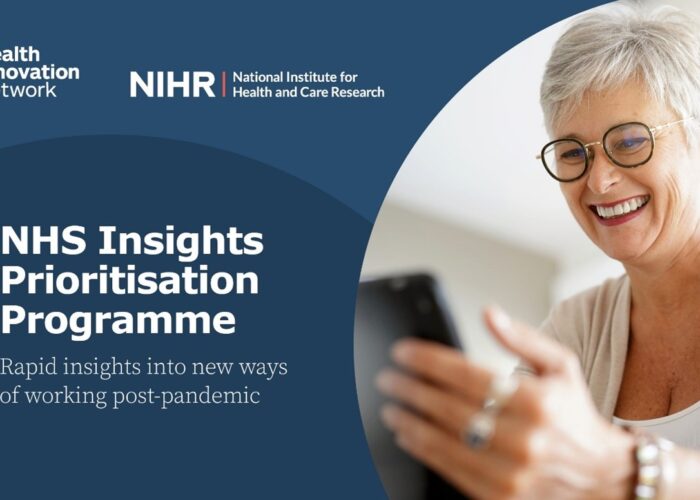Imperial College Health Partners are proud to partner with Health Data Research UK (HDR UK) to lead by example in the health data science industry in response to the issue that Black people are heavily underrepresented in the science, technology, engineering and maths (STEM) community.

This Summer we welcomed Gibril Gaye and Meron Kifle, two talented paid interns as part of HDR UK’s Black internship programme, which has seen 54 interns recruited to the partnerships that form the HDR UK co-ordinated UK Health Data Research Alliance (HDR Alliance). We had a chat with the interns before they continue onto the next steps of their careers reflecting on their ambitions of the internship and time at ICHP
What attracted you to the position?
GG- I applied to the position because I have interests in the use of data to solve problems. Health data is increasing complex and a thorough understanding of it will lead to more informed decisions regarding health. ICHP is uniquely placed into NHS to understand it’s needs and propose suitable solutions. Additionally, I wanted a better understanding of the work a data scientist does on a daily basis and potentially grow my network.
MK- Throughout my career experience, I have had a special interest with data as well as its applications to healthcare. Having recently graduated with a global health degree, I was looking to fill the gaps I had in health data science knowledge and skill in a UK context. At this juncture, a unique opportunity from the HDRUK came along through which I got a chance to work for Imperial College Health Partners (ICHP).
Your time at ICHP?
MK- My stay at ICHP has far exceeded my expectations in a number of ways. From the get-go, I was directly working on a project that looked at the indirect impact of Covid-19 pandemic on Hypertension diagnosis and outcomes in Northwest London. I employed a dataset from the Discover-NOW initiative; a hub that supports Covid-19 research to aid the national effort and focus on improving our understanding of this disease and the impact on our communities and healthcare sector. Concurrently, I was involved in projects related to maternal and neonatal health inequalities and outcomes that involved multiple stakeholders from the NHS to academic institutions like imperial College London.
With a continuous help and balanced guidance from a welcoming manager and support from ICHP staff, I have been able to expand my span of knowledge on liaising data access procedures, data curation, analysis, and presentation to various stakeholders. Despite working remotely. ICHP staff made me feel at home as they were very welcoming and were willing to help even at short notice. I also benefited greatly from a wide array of resources including the regular teaching sessions provided by ICHP staff. In short, all of these experiences have solidified my career goals in quantitative health care greatly and enabled me to create professional connections along the way. I am, therefore, indebted to ICHP and HDRUK for this amazing initiative. I highly recommend anyone interested in health data science and making a real impact to their community consider this opportunity.
GG- My time at ICHP has been an overall positive experience. I enjoyed working with members of different teams on exciting projects. I valued the autonomy given to me as an intern from the very beginning. Before the internship I did not have experience in scoping or designing a project. Also, speaking to members of the Analyst team gave me insights into the skills needed to succeed in the role and general career advice.
I am grateful for the support I received from my supervisor and line manager; they have been helpful from the throughout the journey.
Final thoughts, why is health data research and Discover-NOW important?
Discover-NOW is an important data hub that will enable researchers to answer questions about population health and understand disease dynamics. A central data hub ultimately means uniform data is available for different institutes to use allowing to better collaboration.



